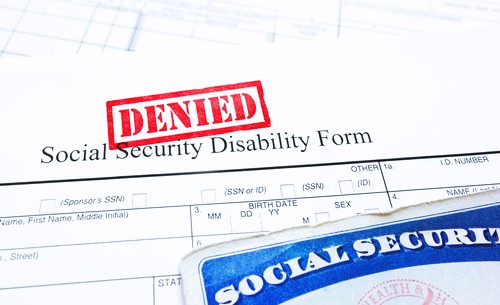
Being disabled can make it challenging to earn a living. If you have a disability that affects your ability to work, you could be eligible for Social Security Disability (SSDI) benefits. This program offers financial help to disabled individuals who meet specific criteria, including having a qualifying disability and having assets and income below a certain level.
Learn below about what the limits are for Social Security Disability. If you have questions about your case, speak to our Illinois Social Security Disability attorneys at Harold W. Conick & Associates.
To qualify for SSDI, you must have a certain amount of work credits, according to your age. You gain four work credits per year, assuming the Social Security program covers the job. Because you have worked, you have paid into the Social Security system, so you should be eligible for SSDI if you meet the criteria.
SSDI benefits are paid monthly, according to your average lifetime earnings before injury. As of 2019, the average monthly benefit was $1,234, but most individuals receive between $800 and $1,800 monthly.
The program does not have a limit on the unearned income or assets you may have. However, the Social Security Administration (SSA) does limit the amount you can earn through work if you receive disability benefits; after all, if you can earn a considerable income, the SSA does not consider you disabled.
If you can perform what the SSA calls ‘substantial gainful activity,’ you are not disabled. A person who makes more than a certain amount per month is said to be engaging in substantial gainful activity and is ineligible for SSDI. As of 2023, the amount for significant gainful activity is $1,470 for most applicants and $2,460 for those who are blind.
Some people who get SSDI may have sufficient improvement in their disability and want to return to work. But they could be afraid they cannot keep a job because of their disability. The SSA encourages disability recipients to attempt to go back to work, so it allows an exception called the trial work period (TWP). During TWPO, the person getting SSDI can enjoy unlimited earnings and still get full benefits without risking that those benefits will be reduced or eliminated.
The TWP provides nine out of 60 months where the SSDI recipient can attempt to work without having their benefits cut. In 2023, any month when the disability recipient earns above $1,050 is termed a trial work month. After you have worked for over nine months and earned above $1,050, the SSA will evaluate your work to determine if it is more than the substantial gainful activity limit. If so, disability benefits will continue for 90 days and then end.
Our Illinois Social Security Disability attorneys understand and respect the challenges the disabled face in our society. If you have a disability that affects your ability to work, please contact our law office today by dialing (800) 608-8881. Attorney Harold W. Conick is highly experienced with Social Security disability cases and has achieved favorable resolutions in hundreds of cases via civil trials, administrative hearings, and settlements.